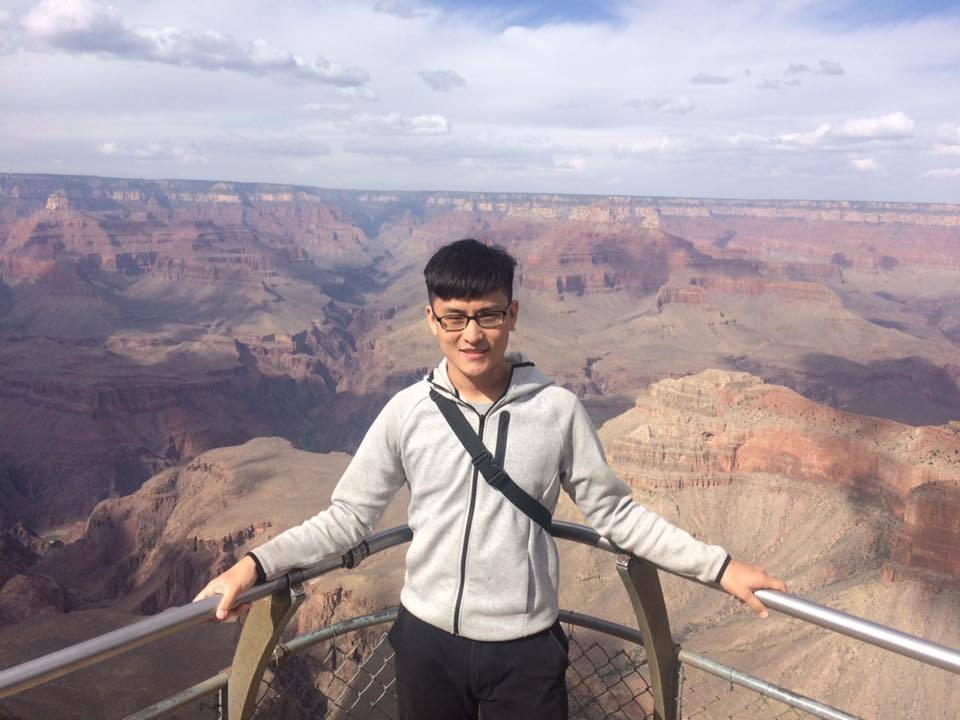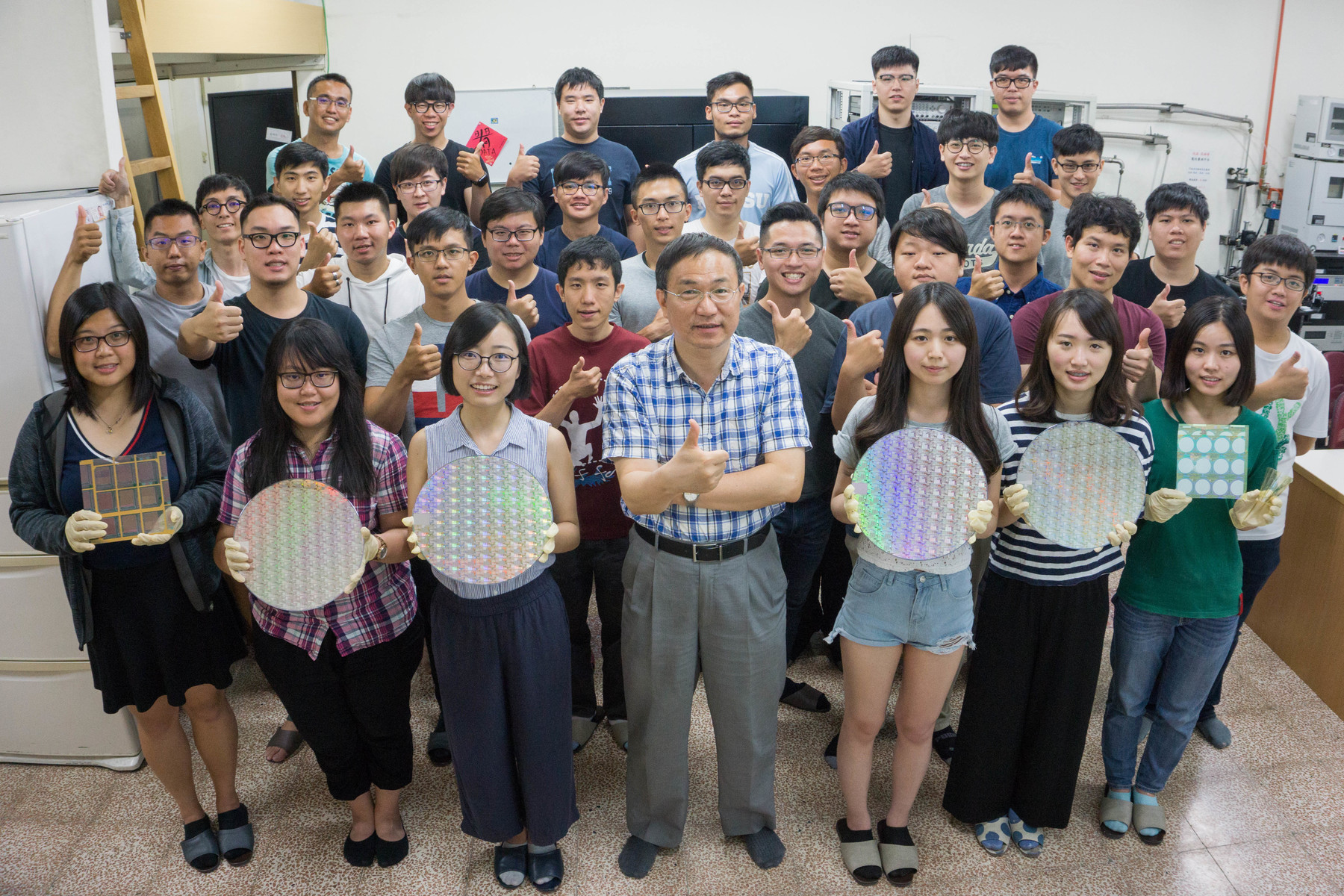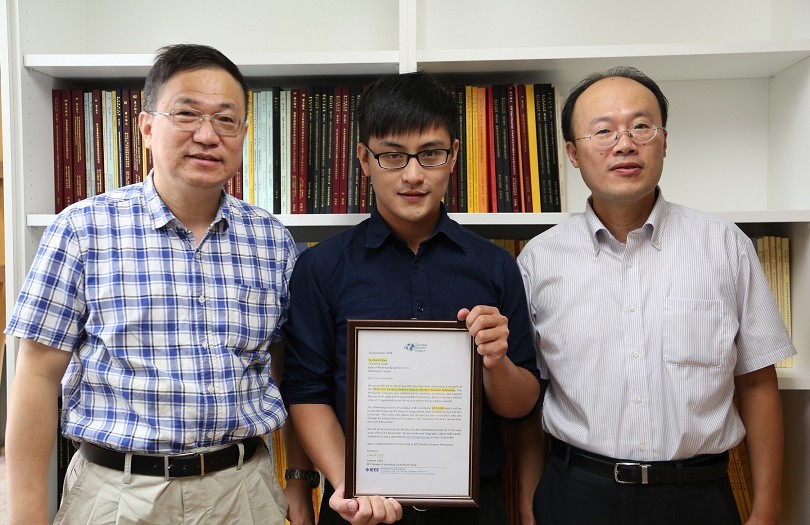The Youngest Recipient! NSYSU Student Awarded an IEEE Fellowship



Living up to expectations, Yu-Chieh Chien from the Department of Materials and Optoelectronic Science (MOES), National Sun Yat-sen University (NSYSU), has made another breakthrough! Last May, during his junior year, he published a research paper as the first author in Electron Device Letters, the highest quality journal in the international field of electronic component design. This year, Chien, as a graduate student, achieved yet another exceptional feat in his field when he became the youngest Taiwanese recipient of the IEEE Electron Device Society Master Student Fellowship, a prize of US$2,000 (approximately NT$60,000).
Of the winners of the 2018 Electron Device Society Master Student Fellowship announced by the US IEEE Electron Device Society, Chien—in his first year of a master’s program at the Department of MOES, NSYSU—was the only recipient in the Asia-Pacific region and the youngest ever Taiwanese recipient. The fellowship is usually awarded to second-year master students or doctorate students. His understanding and fruitful research findings amazed the jury into awarding him the great honor at such a young age. He humbly attributed his success to the guidance of his research advisors and the school.
Chien stated that the key to receiving this fellowship was principally the guidance of his professors and seniors regarding how to impress the jury with application materials. The rich academic resources provided by the school research laboratories and mutual discussions with peers also contributed to the success. He is particularly grateful to chair professor Ting-Chang Chang in the Department of Physics and associate professor Tsung-Ming Tsai in the Department of MOES. He admires professor Chang’s enthusiasm for research and teaching, saying that “In addition to academic knowledge, I learned a responsible attitude from professor Chang. He is no doubt the teacher who inspired me and has made continual contributions. I could never have received this award without him.” Professor Tsai is not only friendly but also willing to help solve various problems encountered by students, increasing their research acumen through discussion.
Chien also mentioned that he paid particular attention to laboratory work and spent considerable time on his research. Whenever he experienced difficulties, he would ask his seniors for help. For instance, he often had blind spots when interpreting research data, neglecting aspects he simply took for granted. Discussing these blind spots with senior students and consulting books are conducive to research, but the most crucial part is continuing in one’s own endeavors. Chien believes that he is still young and should constantly set goals as a motivation to improve. He considers receiving the fellowship as only the beginning and will continue to give his utmost to research. He also modestly mentioned that he did not expect to receive the award. Chien has already published five articles in SCI journals and participated in three academic–industry cooperation projects.
Three IEEE EDS Master Student Fellowships have been offered annually since 2007, with elite talent from all over the world applying. One winner each is selected from the following regions: America, Europe, and Asia-Pacific. Applicants for the fellowship must possess sufficient abilities in research and implementing research projects regarding electronic components.
Of the winners of the 2018 Electron Device Society Master Student Fellowship announced by the US IEEE Electron Device Society, Chien—in his first year of a master’s program at the Department of MOES, NSYSU—was the only recipient in the Asia-Pacific region and the youngest ever Taiwanese recipient. The fellowship is usually awarded to second-year master students or doctorate students. His understanding and fruitful research findings amazed the jury into awarding him the great honor at such a young age. He humbly attributed his success to the guidance of his research advisors and the school.
Chien stated that the key to receiving this fellowship was principally the guidance of his professors and seniors regarding how to impress the jury with application materials. The rich academic resources provided by the school research laboratories and mutual discussions with peers also contributed to the success. He is particularly grateful to chair professor Ting-Chang Chang in the Department of Physics and associate professor Tsung-Ming Tsai in the Department of MOES. He admires professor Chang’s enthusiasm for research and teaching, saying that “In addition to academic knowledge, I learned a responsible attitude from professor Chang. He is no doubt the teacher who inspired me and has made continual contributions. I could never have received this award without him.” Professor Tsai is not only friendly but also willing to help solve various problems encountered by students, increasing their research acumen through discussion.
Chien also mentioned that he paid particular attention to laboratory work and spent considerable time on his research. Whenever he experienced difficulties, he would ask his seniors for help. For instance, he often had blind spots when interpreting research data, neglecting aspects he simply took for granted. Discussing these blind spots with senior students and consulting books are conducive to research, but the most crucial part is continuing in one’s own endeavors. Chien believes that he is still young and should constantly set goals as a motivation to improve. He considers receiving the fellowship as only the beginning and will continue to give his utmost to research. He also modestly mentioned that he did not expect to receive the award. Chien has already published five articles in SCI journals and participated in three academic–industry cooperation projects.
Three IEEE EDS Master Student Fellowships have been offered annually since 2007, with elite talent from all over the world applying. One winner each is selected from the following regions: America, Europe, and Asia-Pacific. Applicants for the fellowship must possess sufficient abilities in research and implementing research projects regarding electronic components.
Click Num:
Share
